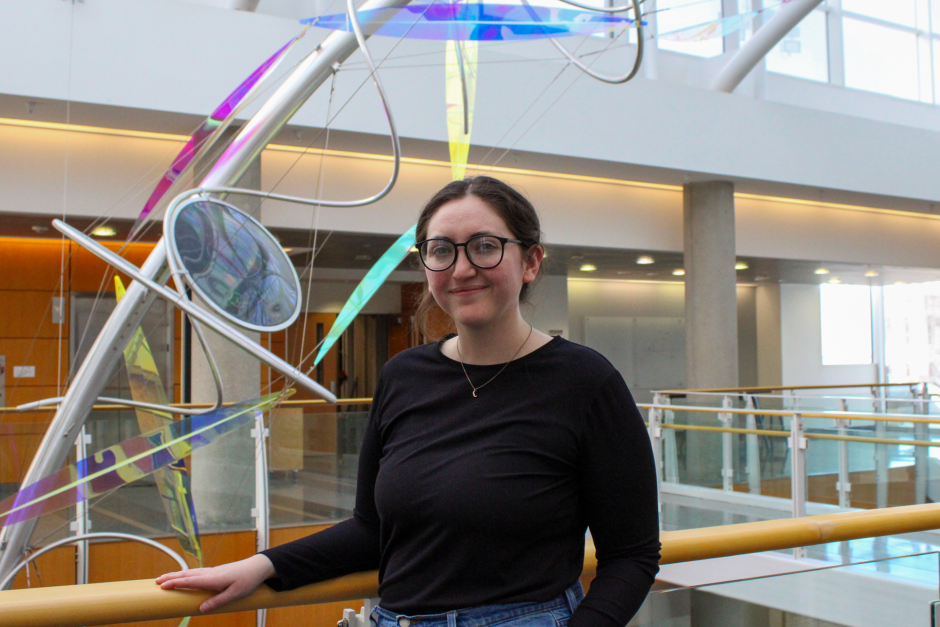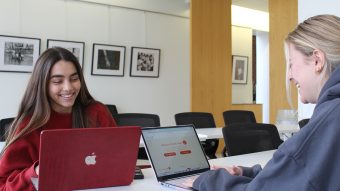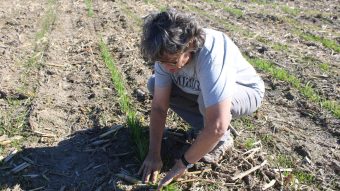By Jake Aron

Photo by Kendall Roberts
April 14, 2025
Curious about research but not sure where to start? Sarah Hurt has been there, and she has advice to help you find your own path.
When she arrived at the University of Missouri in 2015 as a first-generation college student, Hurt — now a postdoctoral fellow at Mizzou — dove into campus life while earning a degree in biological engineering. She tapped into the Writing Center and Fellowships Office and other campus resources. She built a network of mentors and carved out her own place in science.
Hurt received the prestigious National Science Foundation Graduate Research Fellowship and earned her doctorate from Washington University in St. Louis in 2024. She then returned to Mizzou, where she now studies rare genetic diseases in the labs of Christian Lorson, Curators’ Distinguished Professor of Veterinary Pathobiology, and Monique Lorson, associate research professor.
Now, during Show Me Research Week, Hurt shares her top tips to help you open doors, ask questions and explore research at Mizzou.
Start Early
Research isn’t just for upperclassmen. At Mizzou, students can start as early as their first year. Not sure where to begin? Check out Student Training for Advancing Research (S.T.A.R.), a series of workshops designed to get you lab-ready.
“I know sometimes it can take first-year and first-gen students time to find research as an opportunity,” Hurt said. “But I think being involved in research from freshman year on was incredibly helpful.”
Many students start out as lab assistants and, over time, work their way into internships and independent projects. And you don’t have to figure it out alone. The Office of Undergraduate Research is here to help you take that first step.
Talk to Researchers
One of the best ways to learn about research is to talk to people already doing it. Ask about their work, their path and whether there are opportunities in your area of interest.
“Many, if not all, of your professors are doing research on campus, so talk to them,” Hurt said. “See what their research is like — especially if you love their class. If you enjoy the way they teach, you’re probably going to enjoy the way they run their research lab.”
If you want to see undergraduate research in action, make plans to swing by Show Me Research Week poster and oral presentations, happening this week on the second floor of Memorial Union North. Students from across disciplines are presenting their works through 3:30 p.m. April 14 and from 9 a.m. through 3:30 p.m. April 15-16. View the full schedule of activities here.
Find Your People
Behind every successful researcher is a solid support system — and mentors play a big part in that.
“I think mentorship is such an important part of growing as a researcher and even as a person,” Hurt said. “Having opportunities to find mentors in lots of different spaces is incredibly important.”
Mentors don’t always have to be professors. Hurt leaned on upperclassmen, graduate students and those who had recently completed doctoral degrees when she was starting out — and says friends and classmates can be just as valuable.
“If you work in a research lab, keep talking to people, and some of them will just end up becoming mentors,” she said. “If you don’t work in a lab yet, reach out to classmates. You never know who’s already one step ahead and happy to help.”



